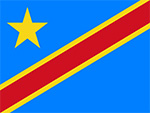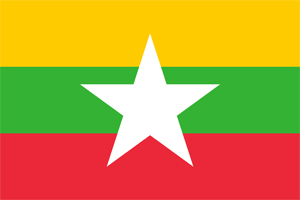Engaging Youth in Accelerating SDG Implementation beyond Capacity Building
Global Water Partnership
(
Intergovernmental organization
)
#SDGAction51102
Description
GWP is launching the Water Academy for Youth (WAY) as a programme to promote leadership, regional youth capacity building, mentorships, fellowships, internships, networking and intergenerational dialogues. The WAY is envisioned to be a customisable programme implemented at a regional scale that can be adapted according to the needs and context of the region in which the programme is being implemented. The core objective of the programme is to support the acceleration of the SDGs and improving the skills of young leaders (18-35 year olds).
The GWP WAY aims to take strategic steps from learning to leading. The manner of instruction will move away from traditional lecture-based teaching and create a space for collaborative and immersive learning based on design thinking and systems thinking. Using the knowledge and experience gained, young people will be connected to decision makers, practitioners, and senior water leaders to act on SDG implementation through water. The specific objectives of the WAY programme are as follows:
To ground learning opportunities in a relevant policy context through participation of on-ground practitioners and experts.
To have customised, interdisciplinary, and cross-sectoral courses, specific to local and regional needs.
To build youth interest, capacity and leadership in water governance and management and actively engage youth across the GWP Network.
To cultivate collaboration on solutions for SDGs between decision makers and young water leaders for effective youth engagement.
Each programme is delivered in an online format for a duration of 2-3 months and the youth members are engaged beyond the programme duration with GWP through Community of Practices hosted in the GWP ToolBox.
The desired impact of the WAY programme is to develop youth capacity, enhance their participation in SDG processes, strengthen youth networks and intergenerational connections and provide them with opportunities to contribute to sustainable development. The following are more details on the expected impacts of the programme:
The WAY programme will bring together 300 youth and young professionals from 13 regions and a range of different backgrounds to build interdisciplinary connections and approaches to address interconnected problems. These interdisciplinary connections and a diversity of perspectives will lead to innovative solutions that contribute to addressing the Sustainable Development Goals.
The WAY programme will foster youth leadership and capacity to engage youth across SDG processes. The programme includes a breadth of curriculum components that focus on leadership, advocacy, innovation, storytelling, business development, entrepreneurship, scientific writing, and proposal development with cross cutting elements of IWRM and Climate Change. This is further complemented by sessions on Sustainable Development Goals and their monitoring processes which will further equip the participants to streamline and accelerate their actions towards the sustainable development goals. The delivery of the programme will be based on design thinking, systems thinking and interactive programming that supports a paradigm shift in the structure of capacity building programmes itself.
The WAY will allow participants to develop tangible youth-led outputs such as innovative business plans, concept notes, research reports and project proposals as final deliverables. These programme deliverables will highlight youth expertise and potential contributions towards sustainable development and can be showcased at the end of the programme to a wide audience of professionals. Furthermore, the deliverables can be further refined and extended to be full projects which support SDGs.
The WAY programme will not only focus on capacitating youth but also foster connections and relationships for further personal and professional growth. The programme aims to create a collaborative environment of working together with peers and water sector professionals. Mentors and facilitators will play an important role for youth to build momentum with key actors in the water community to translate youth capacity into action through intergenerational partnerships.
Local, National, Regional and Global Partners according to region of programme implementation
SDGS & Targets
Goal 6
Ensure availability and sustainable management of water and sanitation for all
6.1
By 2030, achieve universal and equitable access to safe and affordable drinking water for all
6.1.1
Proportion of population using safely managed drinking water services
6.2
By 2030, achieve access to adequate and equitable sanitation and hygiene for all and end open defecation, paying special attention to the needs of women and girls and those in vulnerable situations
6.2.1
Proportion of population using (a) safely managed sanitation services and (b) a hand-washing facility with soap and water
6.3
By 2030, improve water quality by reducing pollution, eliminating dumping and minimizing release of hazardous chemicals and materials, halving the proportion of untreated wastewater and substantially increasing recycling and safe reuse globally
6.3.1
Proportion of domestic and industrial wastewater flows safely treated
6.3.2
Proportion of bodies of water with good ambient water quality
6.4
6.4.1
Change in water-use efficiency over time
6.4.2
Level of water stress: freshwater withdrawal as a proportion of available freshwater resources
6.5
By 2030, implement integrated water resources management at all levels, including through transboundary cooperation as appropriate
6.5.1
Degree of integrated water resources management
6.5.2
Proportion of transboundary basin area with an operational arrangement for water cooperation
6.6
6.6.1
Change in the extent of water-related ecosystems over time
6.a
6.a.1
Amount of water- and sanitation-related official development assistance that is part of a government-coordinated spending plan
6.b
Support and strengthen the participation of local communities in improving water and sanitation management
6.b.1
Proportion of local administrative units with established and operational policies and procedures for participation of local communities in water and sanitation management
Goal 13
Take urgent action to combat climate change and its impacts
13.1
Strengthen resilience and adaptive capacity to climate-related hazards and natural disasters in all countries
13.1.1
Number of deaths, missing persons and directly affected persons attributed to disasters per 100,000 population
13.1.2
Number of countries that adopt and implement national disaster risk reduction strategies in line with the Sendai Framework for Disaster Risk Reduction 2015–2030
13.1.3
Proportion of local governments that adopt and implement local disaster risk reduction strategies in line with national disaster risk reduction strategies
13.2
Integrate climate change measures into national policies, strategies and planning
13.2.1
Number of countries with nationally determined contributions, long-term strategies, national adaptation plans and adaptation communications, as reported to the secretariat of the United Nations Framework Convention on Climate Change
13.2.2
Total greenhouse gas emissions per year
13.3
Improve education, awareness-raising and human and institutional capacity on climate change mitigation, adaptation, impact reduction and early warning
13.3.1
Extent to which (i) global citizenship education and (ii) education for sustainable development are mainstreamed in (a) national education policies; (b) curricula; (c) teacher education; and (d) student assessment
13.a
Implement the commitment undertaken by developed-country parties to the United Nations Framework Convention on Climate Change to a goal of mobilizing jointly $100 billion annually by 2020 from all sources to address the needs of developing countries in the context of meaningful mitigation actions and transparency on implementation and fully operationalize the Green Climate Fund through its capitalization as soon as possible
13.a.1
Amounts provided and mobilized in United States dollars per year in relation to the continued existing collective mobilization goal of the $100 billion commitment through to 2025
13.b
Promote mechanisms for raising capacity for effective climate change-related planning and management in least developed countries and small island developing States, including focusing on women, youth and local and marginalized communities
13.b.1
Number of least developed countries and small island developing States with nationally determined contributions, long-term strategies, national adaptation plans and adaptation communications, as reported to the secretariat of the United Nations Framework Convention on Climate Change
SDG 14 targets covered
| Name | Description |
|---|
Deliverables & Timeline
Resources mobilized
Partnership Progress
Feedback
Action Network

Timeline
Entity
Region
- Africa
- Europe
- Asia and Pacific
- Latin America and the Caribbean
- West Asia
- Global
Other beneficiaries
Youth (18-35 years old)
Countries




























Contact Information
Rianna, Water Resources Specialist

